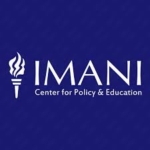General
24-Hour economy policy a major improvement on past fragmented initiatives – IMANI Africa
Policy think tank, IMANI Africa, has described Ghana’s 24-Hour Economy and Accelerated Export Development programme as a major improvement from past fragmented development efforts.IMANI Africa says the policy document has the potential to deliver long-term structural transformation if properly ex...
MyJoyOnline
published: Jul 11, 2025


Policy think tank, IMANI Africa, has described Ghana’s 24-Hour Economy and Accelerated Export Development programme as a major improvement from past fragmented development efforts.
IMANI Africa says the policy document has the potential to deliver long-term structural transformation if properly executed.
In its latest report, titled “Criticality Analysis of Governance and Economic Issues” and released between June and July this year, IMANI argues that the government’s flagship initiative is not merely a job-creation scheme based on extended working hours or multiple shifts. Instead, it sees the policy as a bold and comprehensive plan to reengineer Ghana’s economic architecture.
According to IMANI, the full policy blueprint outlines an ambitious agenda designed to integrate agriculture, industry, supply chains, manufacturing, culture, and human capital into a unified and sustainable development framework.
According to the report, a central pillar of the 24-Hour Economy policy is its emphasis on agriculture as the foundation for industrial expansion. The think tank commended the government for recognising that “you cannot industrialise what you cannot produce,” and praised the focus on linking agriculture to critical industries such as agro-processing, textiles, pharmaceuticals, and food supplements.
“This is a major improvement from past fragmented initiatives. It shows the government understands the centrality of agriculture to Ghana’s macroeconomic and industrial performance.”
The policy think tank indicated in its report that the 24H+ programme marks a welcome departure from the disjointed development strategies of the past and reflects a more coherent understanding of economic transformation.
“The policy isn’t about working around the clock,” the report clarifies. “It’s about making the economy work better, deeper, and more sustainably.”
However, the report warns that the success of the policy will depend not on ambition, but on effective implementation. It cites the textile and garment sector as a case in point where strategic goals may be undermined by weak foundational systems.
While the policy outlines plans to transform Akosombo Textiles Limited and Tex Styles Ghana into fully integrated production hubs, IMANI cautions that without reviving Ghana’s declining cotton sector, those ambitions may be unsustainable.
Beyond the agriculture and textile sectors, IMANI raised broader concerns about Ghana’s capacity to implement such an ambitious economic shift.
The report identifies key challenges in land governance, irrigation infrastructure, agro-credit systems, workforce skills development, and alignment between research and industrial priorities.
Read More